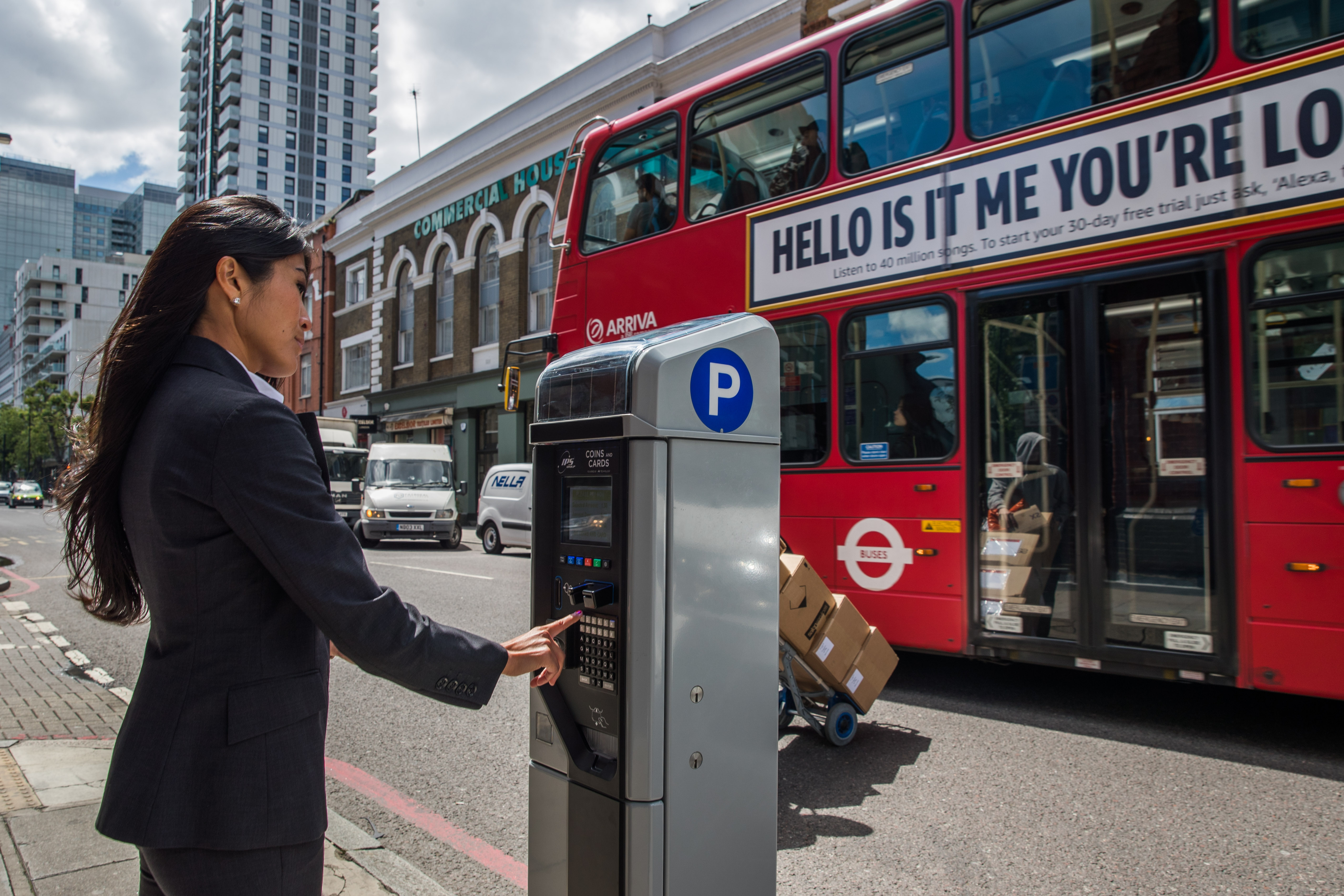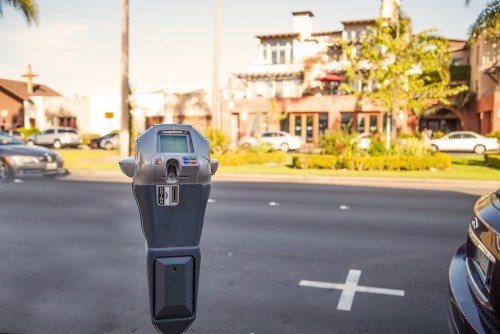
Technology Transformation
The Internet of Things (IoT) is transforming the technology landscape, revolutionising every facet of life. Smart devices collect data on the number of steps we walk or adjust the temperature in a home to conserve energy. Sensor technology is a key component, increasing the capabilities of smart devices in every field. In Smart Parking, sensors reliably detect the presence or absence of a vehicle in a parking space, allowing councils to more accurately understand parking demand while providing the capability to:
- Access real-time and historical occupancy data
- Reset the terminal to zero time when a vehicle leaves a parking space
- Prevent terminal feeding, thereby promoting space turnover
- Offer courtesy time, resulting in positive public perception of the terminals
- Enable demand-based and progressive rate structures
- Optimise enforcement
These features can assist councils in making data-driven policy decisions, increase revenue, and maximise program efficiency. But with the high visibility of parking programs and the political nature that is often involved, the need for accuracy is critical.
A Sensor’s Algorithm
Vehicle detection sensors most commonly utilise magnetic or radar-based techniques to sense movement and objects. When installed on a street – as opposed to remaining in a closed and controlled environment – the variables increase. On-street parking is far more complex than off-street because there is more activity to influence the sensor.
Consider the life of a parking space. Within the course of an hour, multiple objects may pass through, including trucks, motorcycles, smart cars, bicycles, and even people. A car may drive through the space en-route to an adjacent parking space. An individual may even park in such a way that two parking spaces are impacted. These are all considered “events”. Ideally, the sensor should only be registering the events in which a car parks and then departs. However, with so many different events on the city street, how does the sensor know which events to log and which events to ignore?
The answer is easy to understand, but difficult to implement. Simply, the sensor needs to be “intelligent” enough to understand the difference. This can only be accomplished by programming the sensor’s algorithm, the step-by-step set of instructions that dictate the sensor’s behaviour. To refine that algorithm, the sensor is exposed to hundreds of events and tested to ensure a proper response. The process of analysing events and solving sensor issues is called accuracy testing. This process essentially tests a sensor’s algorithm to determine if the sensor will react in the desired way.
Determining Accuracy
Until now, event capture was performed though two techniques: observation and video capture. In the observation method, a human observes the same parking space being monitored by a sensor. The observer then logs all the parking events and compares that data against the sensor’s data set.
In the video capture method, a video camera films the same parking space being monitored by a sensor. A human observer then watches the time-stamped video, logs the events, and compares the data against the sensor’s data set. Because this method requires human observation of hundreds to thousands of events, it often takes several months to generate data and analyse sensor performance. The number of times the two sets of data match up, compared against the total number of events, provides a percentage to gauge that sensor’s accuracy, also called an accuracy percentage.
IPS Breakthrough Technology
IPS Group, a leading R&D company in Smart City technology and Smart Parking, has developed a breakthrough form of sensor accuracy testing that will transform the way sensor technology is evaluated within the industry.
In a test environment, cameras are set up to monitor enforced parking spaces. Using time-lapse imagery and video analysis, newly-developed software captures images over several days. Proprietary video analysis software running on a powerful computer creates a data output detailing vehicle activity. With this software-based approach, the data output can be created in a matter of minutes. Time-lapse data is then compared with IPS Group’s vehicle detection sensor data from the IPS Data Management System. Through computational analysis, the sensor’s algorithm is refined and the sensor is “taught” to handle new events. IPS has analysed terabytes of data equivalent to over one billion sensor events to refine its sensor technology.
Sensing the Future
In-ground sensors were the forerunner of vehicle detection technology and offered high accuracy. For optimal performance, sensors are installed into the ground, typically 5-7cm below the surface, under  the area where the metallic bulk of the car typically rests. While offering a high degree of accuracy, in-ground sensors can be negatively impacted by municipal noise such as electric buses, trams or underground utilities. Another inherent disadvantage of this technology is that the parking space must be vacated and left unoccupied in order to replace the battery.
the area where the metallic bulk of the car typically rests. While offering a high degree of accuracy, in-ground sensors can be negatively impacted by municipal noise such as electric buses, trams or underground utilities. Another inherent disadvantage of this technology is that the parking space must be vacated and left unoccupied in order to replace the battery.
Recognising these challenges faced by in-ground sensors, IPS has introduced a sensor that is mounted directly onto the dome of the single-space meter. These sensors boast an average accuracy percentage up to 99% - without the intrusive installation of its predecessors.
Smart Data Drives Smart Cities
Building on the success of its sensor technology base in the US, IPS (UK) Ltd is bringing this state-of-the-art technology to the UK marketplace, helping to drive the Smart Cities evolution in Europe. “Without sensors, you cannot have a Smart City,” says Dave King, CEO of IPS Group. “A Smart Parking program optimises space utilisation, supports traffic management, and changes the behaviour of motorists – all of that is impossible without real-time data.”
“To truly direct parking customers to available spaces, real-time information is required. Other methods are guesswork based on historical information. To build in sensing technology to the point of payment, utilising existing real-time communications infra-structure and increasing the convenience to customers – this is smart,” says Richard Boultbee, Executive Director of IPS (UK) Ltd.
Learn more about IPS Group and its comprehensive product suite of parking terminals, Revolution Upgrade Kits, sensors and analytics at www.ipsgroup.com.
About IPS
IPS UK Ltd. is headquartered in Winchester, Hampshire and are a wholly owned subsidiary of IPS  Group, Inc. An industry pioneer, IPS has been delivering Smart City technology solutions for over 20 years. The company offers a fully integrated smart product suite comprised of single-space meters, multi-space pay stations, pay station upgrade kits, vehicle detection sensors, smart cash collection systems, and SaaS management software with advanced data analytics. Uniquely IPS are also the payment service provider for card transactions.
Group, Inc. An industry pioneer, IPS has been delivering Smart City technology solutions for over 20 years. The company offers a fully integrated smart product suite comprised of single-space meters, multi-space pay stations, pay station upgrade kits, vehicle detection sensors, smart cash collection systems, and SaaS management software with advanced data analytics. Uniquely IPS are also the payment service provider for card transactions.



